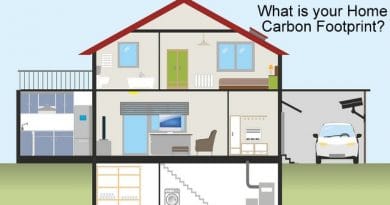Lyn Climate Action
As you read this, we will, of course, be struggling with effects of COVID-19. Lyn Climate Action would like to offer heartfelt sympathies to all those of us whose businesses are affected and any who are having to self-isolate or are particularly vulnerable at this time.
Already we have seen many inspiring offers of help from volunteers. Such responses are evidence of a great community spirit in the Lyn Valley and it is at times as this publication, like this one, become all the more vital. Meanwhile…….
Food for Thought
What we eat is fundamental and we can reduce carbon emissions at every mealtime. The food we put on our plates will have produced carbon due to the growing, rearing, processing, transporting, storing, cooking and disposing of the food we eat. Buying food that has a low carbon footprint can also taste better, be more nutritious, and cost less.
Growing your own: Homegrown fruit and veg are delicious, it can be done from home and it feels great to eat a salad picked from a pot by the back door. There is a dismayingly long waiting list for allotments in the area so if you are on that waiting list – or would like to be – do put the case to the Lynton and Lynmouth Town Council! But even with limited space, it is still possible to fill your meals with homegrown goodness: herbs, tomatoes against a sunny wall, a beautiful courgette plant climbing along a fence, strawberries in hanging baskets, potatoes in a stack of tyres.
How to Sprout Seeds. Seeds sprouts are packed with proteins, vitamins and minerals and growing your own seeds gives you the freshest food possible with no additional food miles and all from store cupboard ingredients. It also is very inexpensive. All you need is a glass jar and a piece of muslin. Fill the cleaned jar one-third full of seeds or beans (e.g. peas, beans, adzuki, alfalfa, or mung beans) and fill with water. Then stretch the muslin over the neck of the jar with an elastic band and leave to soak overnight. Rinse twice daily, keeping it in a well-ventilated place out of direct sunlight (in the dark for mung beans), until the seeds have sprouted.
Sourcing local products: Eating food produced or reared locally limits transport emissions. Lyn valley is lucky to have farmers that produce so much good produce and has excellent shops, pubs and restaurants that use or sell those goods. The Lyn Valley Market has been restarted and (hopefully) will run on the first Saturday of every month in the Town Hall (but note April’s date below). Do use these fantastic resources if you can to buy or sell local produce. Also, locally you can buy eggs, honey, jams, meat, beer etc. The Miles shop at the Vale Yard, Porlock sells home blended tea and home-roasted coffee, Quince farm sells local honey, and Gingernut in Lynton have now begun their refillable milk supply.
Eat seasonal food: Eating food that has been grown without the need for a heated greenhouse or any of the energy required for storing food for long periods cuts out a lot of carbon emissions. And, importantly, it tastes so much better. An English strawberry in summer is so much sweeter and juicier that one grown out of season in Spain; some things are worth the wait!
It also helps to have a diet that is varied, sometimes enjoying a meat-free day. There are many tasty vegetarian/vegan recipes that are simple and less expensive than a meat dish (the charity shop often has vegetarian recipe books). The money saved from eating less meat could then be used to buy high quality, local, organic meat; www.MeatFreeMondays.com is a useful source of information and recipes.
Arising from the Lyn Climate Action meetings:-
- We helped The National Trust in planting a community orchard at Hillsford Bridge.
- A local ‘Street Bank’ is now running. A fantastic way to share and lend stuff so that we don’t all over-buy. See www.streetbank.com.
- Some volunteers have expressed interest in a’ Plastic Free Lynton’. Those who left email addresses will have been contacted – or do add yours to the list if you are interested. Email deirjohn@aol.com
- In due course, the Lyn Climate Hub will be set up. We will need more volunteers to help run it; if you are interested contact: barbara.a.johnston.20@gmail.com
- Ideas for the future are for the planned LCA Hub to have a Community Fridge where those with a glut of something, kale or courgettes, for instance, could put it in the fridge for anyone to have. And to have a seed swapping system for growers to get a wider selection of food to grow.
Dates for your diary (conditional on not having to cancel):
Lyn Valley Market at the Town Hall opens 9.00 am till 1.00 pm Saturday 11th April, and Saturday 2nd May.
Next big Lyn Climate Action meeting 27th May at 7.00 pm at the Town Hall. Our MP, Selaine Saxby will be one of the guest speakers and the other will be from someone in conservation. There will be a chance for questions and answers with both speakers.
Jasmine and Deirdre




